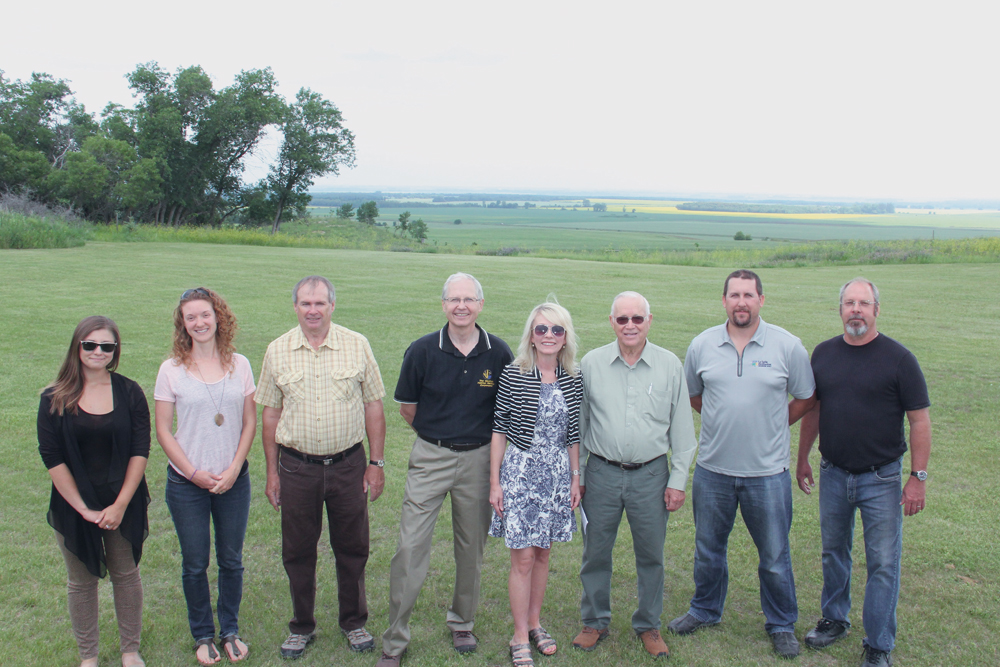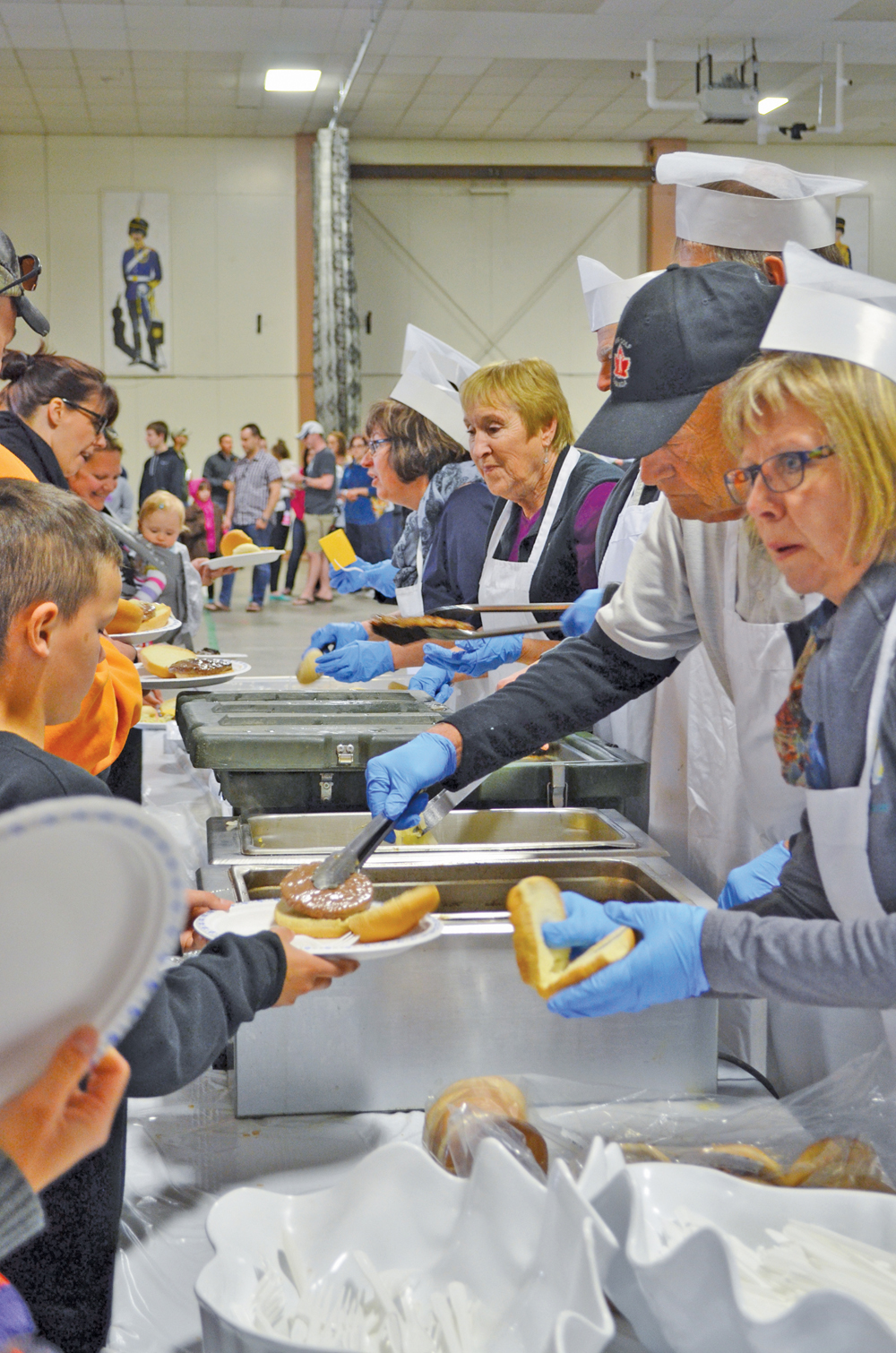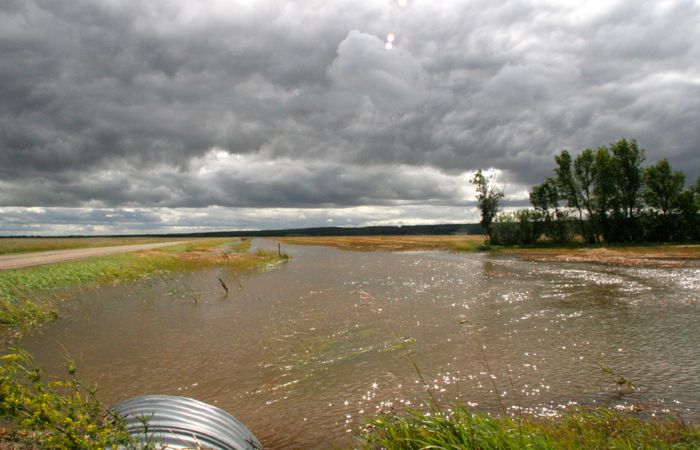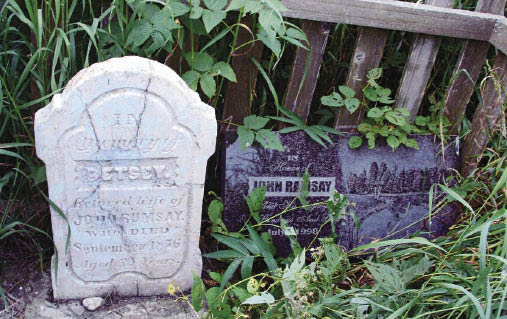Canada’s military is staging a highly publicized battle for the hearts and minds of Afghan peasants and villagers on the other side of the world, but it’s dealing with some alienated locals on the home front too.
Due to peculiarities of geography – with the meandering Assiniboine River on one side and the irregular shape of the training grounds on the other – a handful of farm families nearby have depended on the good graces of Shilo base commanders for access to their fields for decades.
Read Also

Mazergroup’s Bob Mazer dies
Mazergroup’s Bob Mazer, who helped grow his family’s company into a string of farm equipment dealerships and the main dealer for New Holland machinery in Saskatchewan and Manitoba, died July 6 from cancer.
They fear long tradition of easy going, civilian-military relations may be coming to an end.
In the past, the only headaches from living near the base came from the thunder of 155-mm howitzers, which sometimes cracks the plaster in the Miller family farmhouse. But three weeks ago, the Millers found concrete barriers and steel fence posts blocking their nearest route into a 600-acre parcel of prime river bottom land that they have owned, farmed and paid taxes on since 1960.
Instead of travelling 200 yards on the military service road to get to their fields as they have done for years, they must now go an extra 20 kilometres via the Stockton Gate on the west side of the CFB Shilo training ground.
WAITING AT THE GATE
What’s more, under the military’s new access rules, they must call and wait for the soldiers to open the gate each way.
In the past, they were given keys for the gates. But citing the need for safety, new rules imposed by current base commander Lieutenant-Colonel John Schneiderbanger have ended that.
Their land on the other side of the barrier has yielded 35-to 40-bushel canola and 47-bushel wheat in previous years. Now, with 270 acres of winter wheat growing there, Dale Miller would like to go and see how it’s coming along, and get his tractor and seeder out to start field work on the rest of the farm.
“We could take a boat on the river, I suppose,” he said.
Relations with past base commanders were amicable, said Richard Creasy. He and his wife Connie often help Dale and his mother, 76-year-old Theresa Miller, during busy times on the farm. He recalled how, over the years local farmers had invited the local top brass and visiting German army officers along on hunting expeditions.
Lt.-Col. Schneiderbanger, in contrast, “is a little puffy in the chest,” he said. At meetings to discuss the new access rules, the base commander has asserted that “he has the power” to do as he sees fit.
“He’s a dictator,” added Connie. She has appealed to three levels of government, and filed a complaint to the Canadian Armed Forces – all to no avail.
OUT OF OPTIONS
The Millers say that unless the situation changes, they are running out of options. Selling or renting the land to another farmer is out of the question, because the access rules would be too much of a hassle. A handful of their neighbours is encountering similar problems accessing land near the base, they said.
Requests for compensation from the military for the extra fuel, time and machinery expense of using the much longer route have been fruitless, Dale added. It also appears the military is not interested in buying the land.
Dealing with the new rules presents a whole set of problems, the Millers said. Anyone crossing military property must undergo a briefing at the base in Shilo at least once a year. That would include the tire repair truck driver, the crop insurance inspector, or the sprayer guy.
Once the gates are up, permission will be needed from the base to enter and exit on training area roads. With cellphone reception sketchy at best in the areas, waiting times to get in and out could be a costly and unnecessary inconvenience, said Dale.
“They let you in, and they let you out. That’s their idea,” he said.
TRAINING INTENSITY
For his part, Lt.-Col. Schneiderbanger said that the days of easy access by hunters, snowmobilers and ATVs to the outer fringes of the base must end as the intensity of training at CFB Shilo is stepped up due to the war in Afghanistan.
Last fall saw B-52 bombers dropping 500-pound bombs on the range, he noted.
That kind of activity, and an estimated 97,000 pieces of unrecovered and potentially lethal unexploded ordinance – dud shells and bombs – scattered over the impact area by military exercises since live-fire training began in 1910 pose an extreme danger to those who enter, he said.
“My paramount concern as base commander is safety,” he said, noting that last year a farm boy near Rivers was seriously burned when the equipment he was operating set off Second World War-era white phosphorus igniters left over from practice runs at the former air base.
“We are the legal landowner. The key here is the Defence Access Control Act, part of the National Defence Act, which gives me absolute authority to bar anyone from coming onto this base.”
UNAUTHORIZED ACCESS
The old practice of handing out keys to landowners had to be stopped because gates were left open and unauthorized people were at times found to be in possession of keys, he said.
Furthermore, he said, fences have over the years been cut, signage and remote cameras were stolen or damaged, and gates have been pushed down by vehicles. In some cases, with signs removed and gates left open, wandering civilians have taken wrong turns and ended up stuck in their vehicles on the firing range.
All roads on the base belong to the military, not the municipality, he added.
“They are all military service roads, either private roads or restricted roads. They are all part of the base.”
All persons wishing to enter base property must undergo a 15-minute safety briefing, sign a waiver, then call range control each time to request permission to enter. When it is safe to do so, they will be allowed entry, said Lt.-Col. Schneiderbanger.
Farmers wishing to cross base property will have to wait for a green light from range control, even at harvest time.
“Training has priority on this base,” he said. “They will have to wait. An exercise with live fire taking place will only be an hour or two at the most.”
He did however say that a remote-control electric gate with a surveillance camera and intercom will be installed at the Stockton Gate to reduce waiting times – possibly as early as June.
Lt.-Col. Schneiderbanger denied that the new access controls he has imposed have affected relations with neighbouring farmers.
“If anything, what I am doing is making sure that they, their children and their families stay safe. I fully understand their need to carry on their livelihood as farmers.” [email protected]


















